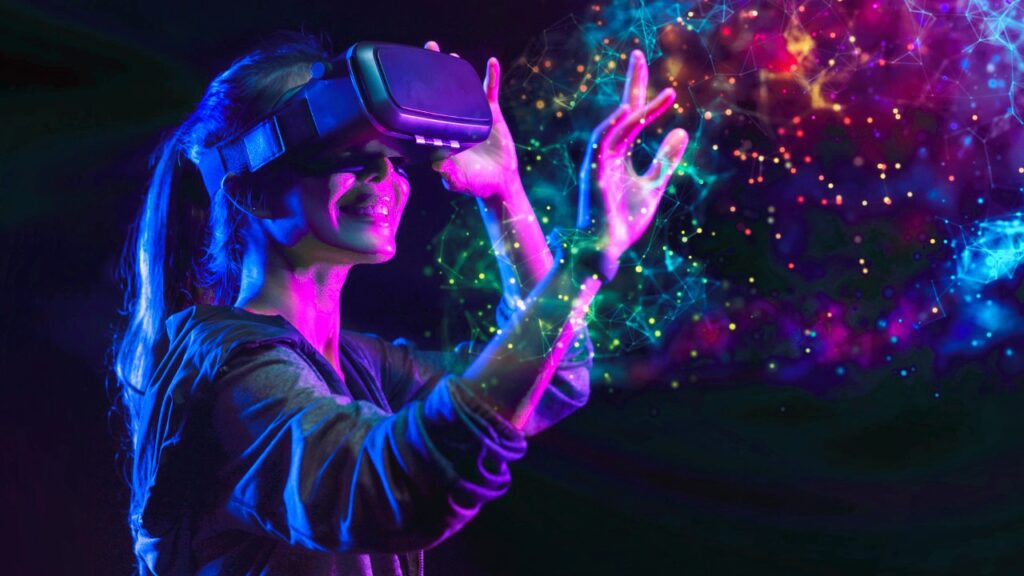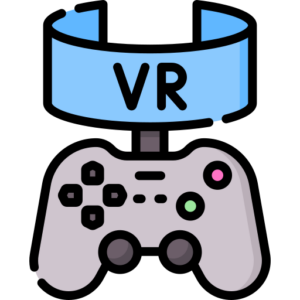Virtual Reality (VR) gaming offers a unique platform for exploring the complexities of human psychology and behavior. By immersing players in virtual environments and experiences, VR games provide researchers with valuable insights into how individuals think, feel, and behave in simulated worlds. In this article, we’ll delve into the psychology of VR gaming and explore how player behavior is influenced by factors such as immersion, presence, social interaction, and motivation.
Immersion and Presence
One of the defining features of VR gaming is its ability to create a sense of immersion and presence, transporting players to virtual worlds that feel real and lifelike. Immersion refers to the extent to which players feel absorbed and engrossed in the virtual environment, while presence refers to the subjective feeling of “being there” in the virtual world. These psychological phenomena play a significant role in shaping player behavior and experiences in VR.
Influence on Decision-Making
Research has shown that immersion and presence in VR can influence decision-making and behavior in significant ways. When players feel immersed in a virtual environment, they may be more likely to exhibit behaviors and reactions similar to those in the real world. This can have implications for how players interact with virtual characters, navigate virtual spaces, and respond to in-game challenges and stimuli.
Emotional Engagement
Immersion and presence also contribute to emotional engagement in VR gaming. When players feel emotionally invested in the virtual world and its characters, they may experience a range of emotions such as excitement, fear, empathy, and joy. These emotional responses can shape player behavior and decision-making, influencing how players approach challenges, interact with others, and experience the game world.
Social Interaction
Another important aspect of VR gaming psychology is social interaction. Unlike traditional gaming, which is often a solitary activity, VR gaming offers opportunities for social interaction and collaboration in virtual environments. Multiplayer VR games and social VR platforms allow players to interact with friends, strangers, and virtual characters, fostering a sense of connection and community.
Social Presence
Social presence refers to the sense of being with others in the virtual environment. Research has shown that social presence in VR can have a profound impact on player behavior and experiences. When players feel a strong sense of social presence, they may be more likely to engage in cooperative behaviors, form social bonds, and experience social influence from others in the virtual world. Do you like our articles? Read also about VR Game Reviews.
Social Norms and Conformity

VR gaming also provides insights into social norms and conformity behaviors. Studies have demonstrated that players in VR environments may conform to social norms and expectations, even when those norms conflict with their own beliefs or preferences. This phenomenon highlights the powerful influence of social factors on individual behavior and decision-making in virtual worlds.
Motivation and Reward
Motivation and reward play a crucial role in shaping player behavior and engagement in VR gaming. Game designers use various techniques such as rewards, achievements, and progression systems to motivate players and encourage continued engagement with the game. Understanding the psychology of motivation can help developers create more compelling and rewarding VR experiences.
Intrinsic and Extrinsic Motivation
Intrinsic motivation refers to the internal desire to engage in an activity for its own sake, while extrinsic motivation involves external rewards or incentives. Both types of motivation can influence player behavior in VR gaming. Games that provide intrinsic rewards such as challenge, mastery, and autonomy may foster greater player engagement and enjoyment, while those that rely heavily on extrinsic rewards such as points, badges, and leaderboards may risk undermining intrinsic motivation.
Flow State
Flow state, or “being in the zone,” is another important concept in VR gaming psychology. Flow state occurs when players are fully immersed and engaged in an activity, experiencing deep concentration, enjoyment, and a sense of effortless action. Games that facilitate flow state by providing optimal levels of challenge and skill can enhance player motivation and satisfaction.
The psychology of VR gaming offers a fascinating glimpse into the complexities of human behavior and experience in virtual environments. By understanding the factors that influence player behavior, such as immersion, social interaction, and motivation, developers can create more engaging and impactful VR experiences. As VR technology continues to evolve, we can expect to see further exploration of the psychological principles that underlie player behavior in virtual worlds.
For more information on the psychology of VR gaming, visit Wikipedia.


